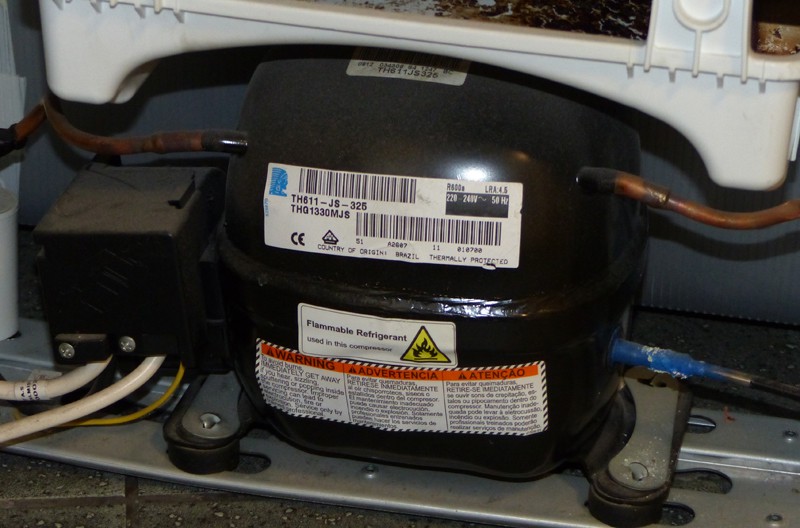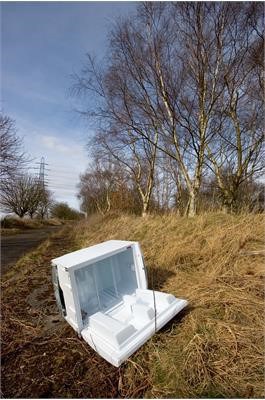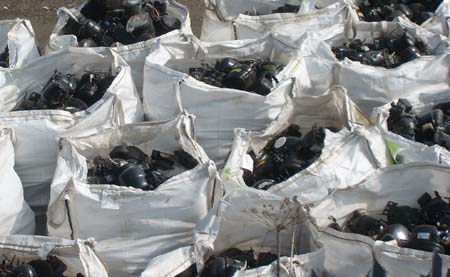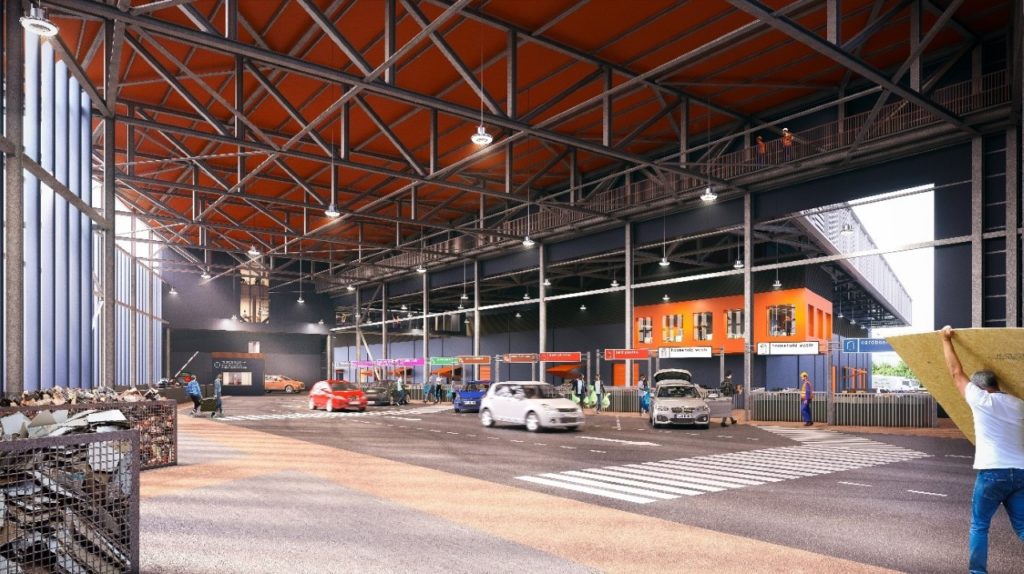
Lichfield district council has noted that 2015 saw an increase in the number of fridges and freezers being left on pavements or fly-tipped across its districts.
The authority suggests that residents are leaving the goods outside homes for collectors to take, but instead the collectors are just removing the compressors which have a value in contrast to the fridge which incurs a fee to treat, and then flytipping the carcase.
In a statement issued earlier this month, Lichfield tells residents that “because scrap metal disposal centres are no longer allowed to accept these appliances, the council believes that rogue scrap metal collectors are removing the parts that can be easily sold, such as the condensers and motors, and leaving the remaining carcase or dumping it in other locations around the district.”
Residents
The authority advises residents to take the items to the council’s household recycling centres, or use the council’s bulky waste scheme or a registered waste carrier.
Councillor Iain Eadie, cabinet member for waste management at Lichfield district council, said: “It’s really important that everyone understands their responsibilities around disposing of unwanted goods to avoid fly-tipping penalties.
“Since metal recycling centres stopped accepting fridges and freezers, because of the need to deal with CFC gasses, we’ve noticed a sharp rise in how many are being left across the district.”
Cllr Iain Eadie
Lichfield district council
“Since metal recycling centres stopped accepting fridges and freezers, because of the need to deal with CFC gasses, we’ve noticed a sharp rise in how many are being left across the district. This is why we’re encouraging everyone to take unwanted items to Household Recycling Centres, or use registered waste carriers to take them away, to make sure their property does not come back to haunt them.”
Abandoned
Andrew Bird, chair of local authority recycling officers organisation LARAC, said that he too was aware of increases in the amount of white goods being abandoned on the streets.
“I would endorse that message from Lichfield. They are absolutely right in what they are saying. And, we as an authority are certainly picking up more white goods at the moment that have been flytipped. If you don’t get money for the metal, then the goods start coming our way.”
Mr Bird said that his own authority, Newcastle-Under-Lyme borough council, collects the white goods and takes them to its own designated collection facility under the WEEE regulations.
‘Discrete waste stream’
The issue with fridges not being removed by itinerant collectors comes largely because the Environment Agency has emphasised the rules governing the storage and handling of waste fridges with them needing to be kept separate from other metals and then dealt with a “as a discrete waste stream”.
However, some metals recyclers have concerns that the Agency is still failing to ensure that waste fridges do go through proper treatment routes and consider that there is a continuing and sizeable illegal trade in compressors (the ball-like black metal component at the bottom of a fridge).

One senior metals recycler told letsrecycle.com that he considered there remained a big issue around compressors and that while fridge carcases were being abandoned, it was not necessarily because of the low value of metal but more that as treatment costs had risen, itinerant collectors would simply illegally take off the compressors and leave the rest of the fridge.
He said: “These compressors have a value of about £200 per tonne and while we are legally handling fridges at a cost, we often find the compressors have been wrongly removed and cables cut off. The Environment Agency has promised action over this but we are still finding the compressors are missing.”
Compressor
In February 2013 the Environment Agency determined that all fridges were hazardous waste and the Agency position is that the compressor and cooling circuit on the back of a discarded fridge contains oil and refrigerant, both of which can cause pollution and harm to the environment. “Therefore they must only be removed (degassed) using appropriate equipment and by suitably trained staff at a permitted facility. Fridges must also be stored and handled appropriately to prevent damage to the cooling circuit or compressor prior to treatment,” the EA says.
The British Metals Recycling Association warned last year that because of the foams and the gases, the Agency classes fridges as hazardous waste.
The association said that following the changes to the rules, “there was a significant reduction in the numbers of fridges being shredded and an increase in throughput at dedicated plant.”
This was because less fridges were going illegally to scrap yards for shredding and more to proper facilities.

But, the metals recycling association has warned that the “the Agency claims to have evidence suggesting that fridges may be finding their way back into shredder feed again. Members are reminded that the Agency’s position remains the same as it was two years ago.”
And, the association added that the Agency has also indicated that some metal recycling sites are trading in fridge compressors.
In a note to members it said: “They [the Agency] suspect many of these may not have had the refrigerants and oil removed legitimately. Degassing and oil removal must be carried out under vacuum using specialist equipment that can safely remove the refrigerant and oil with no fugitive emissions. A compressor that has been illegally removed without first being treated this way will remain hazardous waste (EWC 16 02 15*) even if an attempt is subsequently made to gravity-drain the oil.”
Related links
British Metals Recycling Association
Lichfield district council









Subscribe for free